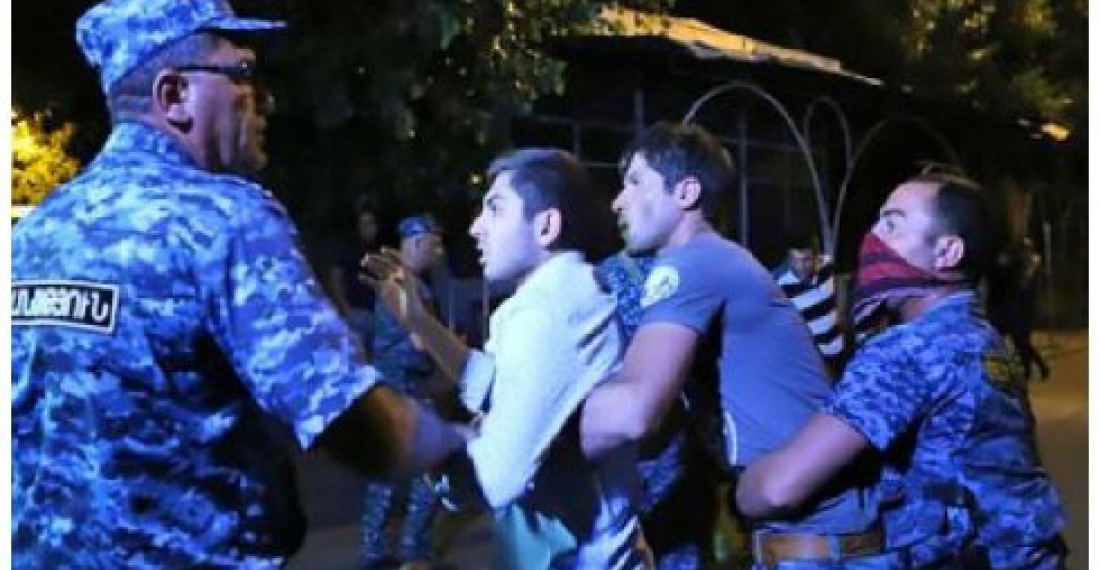A sniper killed a police officer in Yerevan on Saturday night as the ongoing hostage situation at a police station continues.
"Moments ago a sniper has opened fire from the seized police precinct. 30 year old police officer Yura Tepanosyan, who was inside a vehicle 300-400 meters away from the precinct has been killed," police spokesman Ashot Aharonyan wrote on Facebook.
The shooting came on Saturday after police threatened to storm the building in Erebuni. The stand off has now lasted two weeks, with gunmen demanding the release of political prisoners including Zhirayr Sefilian. Last night there were also reports of police conducting house to house searches in the vicinity of the police station.
Friday night saw violent incidents, with police charging into crowds gathered outside the besieged police station in Erebuni. More than sixty persons are reported to have been hospitalised, and dozens of others have been detained.
Several shots were been heard on the daytime on Saturday.
SOURCE: commonspace.eu and agencies
PHOTO: Police detain protesters following clashes in Yerevan on the night of July 29. Courtesy of RFE/RL.






